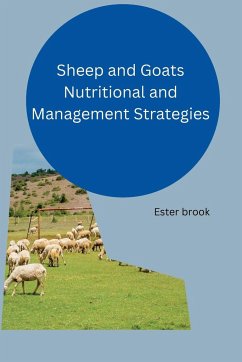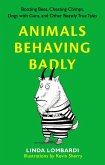Sheep and goats, commonly known as small ruminants, are integral to agricultural systems worldwide. Nutritional and management strategies play a crucial role in ensuring the health, productivity, and overall well-being of these animals. With their unique digestive system and specific dietary requirements, it is essential to implement effective strategies to meet their nutritional needs and address various management aspects. One key aspect of small ruminant management is providing a balanced and appropriate diet. These animals are considered selective grazers and have a preference for browsing on shrubs, trees, and grasses. Their diet should be rich in fiber, with an optimal balance of carbohydrates, proteins, vitamins, and minerals. Adequate forage availability and quality are vital for the maintenance of good health and productivity. Additionally, supplementation with concentrates, such as grains or pellets, may be necessary to meet specific nutritional requirements, especially during periods of high production, such as lactation or growth. Furthermore, proper pasture management is crucial for small ruminant nutrition and overall health. Rotational grazing systems can maximize forage utilization, prevent overgrazing, and minimize the risk of parasite infestation. Regular monitoring of pasture conditions, including soil fertility, plant diversity, and weed control, is essential to ensure optimal grazing opportunities. Water availability is another critical consideration in small ruminant management. Sheep and goats require access to clean and fresh water at all times. Adequate water sources should be readily available, especially during hot weather or when animals are consuming dry forage. In terms of overall management, regular health monitoring and preventive care are essential. Vaccinations, deworming, and hoof trimming should be conducted at appropriate intervals to prevent disease and maintain optimal productivity. Proper housing, shelter, and protection from extreme weather conditions are also necessary to ensure animal comfort and well-being. Effective small ruminant management strategies also involve considering the specific needs of different classes of animals, such as lambs, ewes, and rams, as well as accounting for different production systems, such as meat or dairy production. In conclusion, successful sheep and goat management requires implementing appropriate nutritional and management strategies. This involves providing a balanced diet, optimizing pasture and grazing management, ensuring adequate water supply, and maintaining regular health care. By addressing these aspects, farmers can enhance the productivity and overall health of their small ruminant flocks, ultimately leading to sustainable and profitable agricultural operations.








